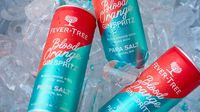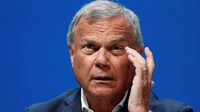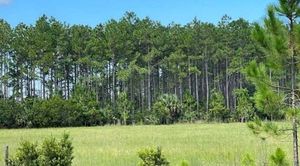Sir Martin Sorrell's advertising agency, S4 Capital, has announced its first dividend and a stark warning over client confidence amidst widening losses. The announcement comes as the company reported that its losses deepened significantly to £307 million for the year 2024, contrasting sharply with losses of £14.3 million the previous year.
Despite these struggles, S4 Capital's stock saw a modest increase of 5.6 percent, rising by 1.86p to reach a price of 34.82p following the announcement. Sorrell, the company's chairman, will benefit personally from the agency's success, receiving a dividend of approximately £540,000 after the decision to pay shareholders 1p per share.
Market analysts are interpreting the news with cautious optimism, given that S4 Capital has indicated that clients are likely to remain 'cautious in the near term' due to ongoing economic uncertainty. This anxiety among customers is attributed to the escalating trade war and tariffs implemented by former U.S. President Donald Trump, which are making businesses hesitant to invest in advertising mass media.
Meanwhile, revenue for S4 Capital also fell sharply by 16.8 percent, totaling £848.2 million for the same period. This decline reflects the challenges facing many companies in the advertising sector as they navigate a highly competitive environment.
The overall market index wasn't far behind this fluctuation, with the FTSE 100 sliding down by 0.1 percent or 8.78 points to settle at 8,638.01. The FTSE 250, on the other hand, saw a slight gain of 0.06 percent, an increase of 10.93 points to reach 19,922.43.
Beyond S4 Capital, other companies also felt the sting of the market's volatility. Wood Group shares fell by 0.9 percent, decreasing by 0.36p to 38.04p, as the company granted its suitor, Dubai-based Sidara, a reprieve until April 17 to make a firm takeover offer. Additionally, JD Sports saw a drop of 2.7 percent, or 2.02p, falling to a price of 73.74p, following Deutsche Bank's decision to cut its target price for the retailer from 95p to 85p.
In brighter news, Fever-Tree Drinks has announced an expansion of its share buyback scheme, which is set to return up to £100 million to shareholders in 2025. This comes on the heels of the company reporting core profits that exceeded forecasts last year. Fever-Tree's share buyback scheme is expanding by £29 million after analysts estimated adjusted earnings before taxation to have increased by two-thirds to £50.7 million in 2024.
Despite that positive note, Fever-Tree also reported sluggish turnover growth of only 1 percent, totaling £364 million last year. Domestic sales shrank by 3 percent to £111.1 million, largely due to a decline in demand from hospitality venues and the waning popularity of gin, showing that even successful companies face pressure.
However, the company did see sales in the United States jump by an impressive 9 percent to £128 million in 2024, signaling a successful expansion of its off-trade customer base. Its success in the UK may have diminished, but the company is gaining traction in North America and is optimistic about its growth potential.
Fever-Tree's domestic performance contrasts with its international success, yet there are promising signs of recovery as they anticipate low single-digit revenue growth for 2025. The tonic maker has also entered a transformative partnership with Molson Coors, granting the brewing giant an 8.5 percent stake in Fever-Tree in exchange for exclusive rights to sell, distribute, and produce its products in the U.S. market.
As Fever-Tree co-founder Tim Warrillow remarked, 'The Fever-Tree brand performed well in 2024, despite the subdued consumer environment.' This reflects the brand's resilient strength amidst challenging conditions.
The share buyback announcement and expected profits have buoyed Fever-Tree's stock, which rose by 5.2 percent to 784p on Tuesday morning, though shares still remain down by about a quarter over the past year.
The economic climate remains rocky for many companies navigating the dual challenges of rising costs and shifting consumer sentiment. As firms like S4 Capital and Fever-Tree adapt to these changes, investors and consumers alike are watching closely to see how well they handle these turbulent times.





